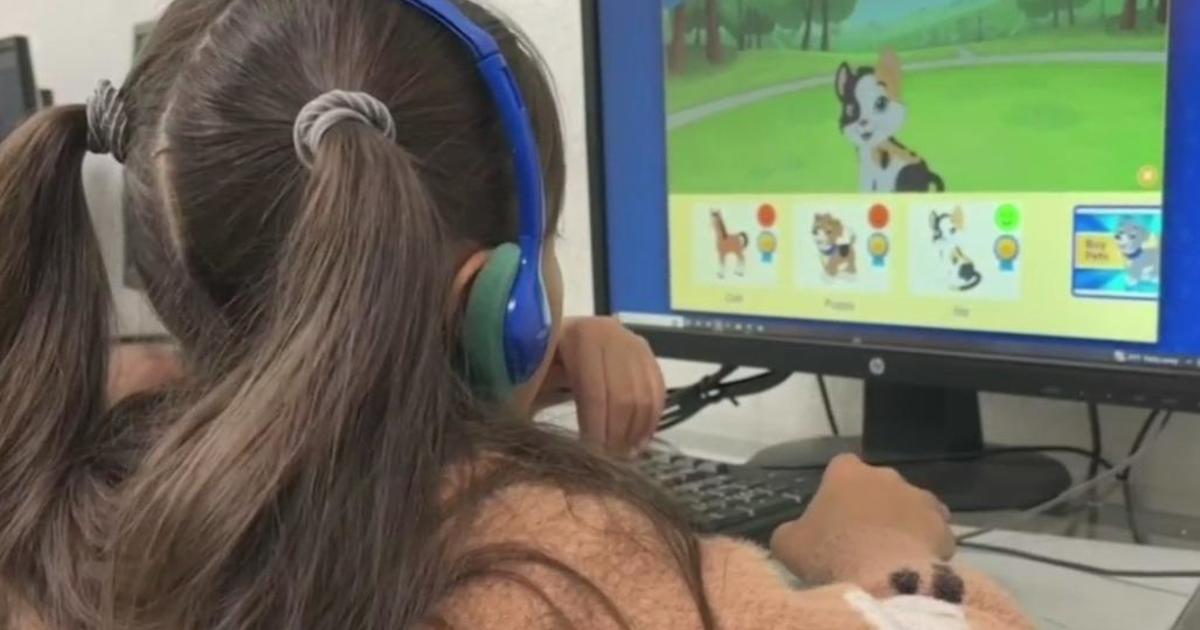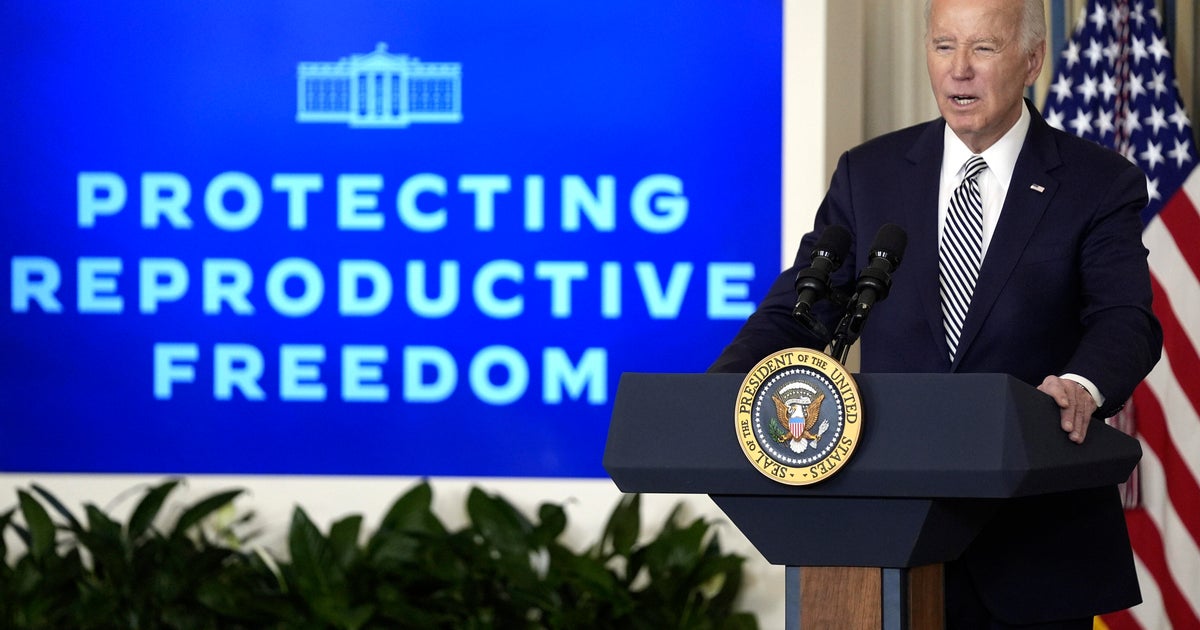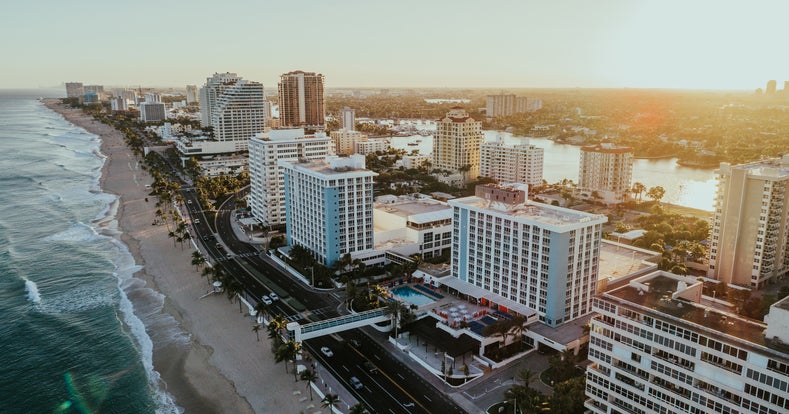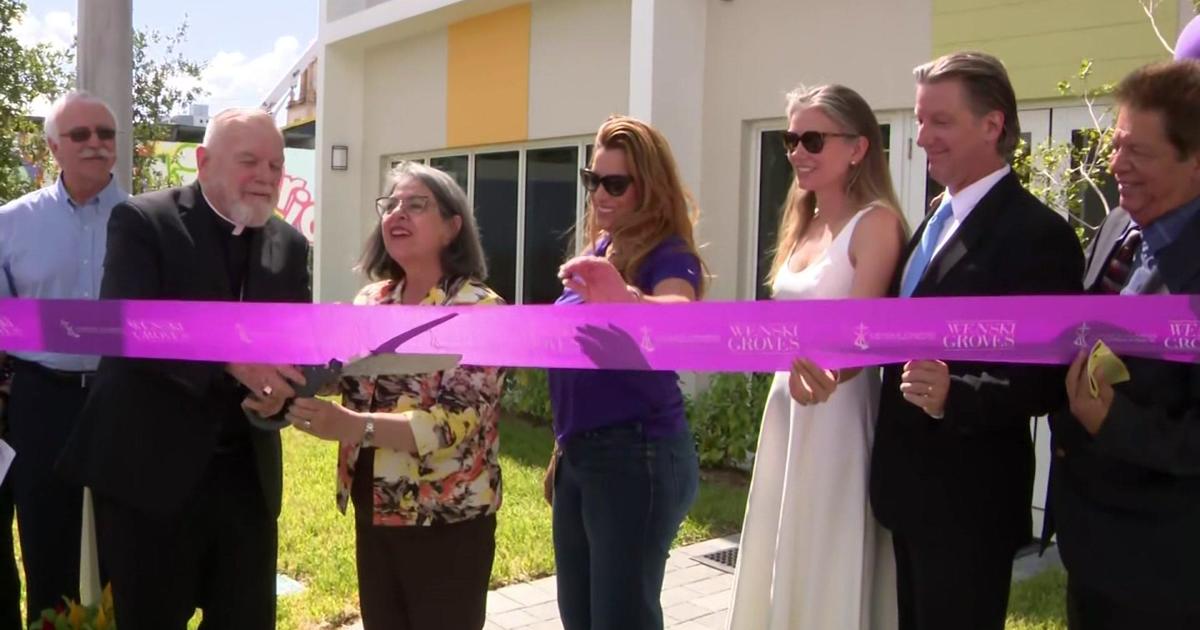'We Challenge Cuba': Trump Changes Obama's Deal
Follow CBSMIAMI.COM: Facebook | Twitter
MIAMI (CBSMiami) – Surrounded by Cuban dissidents and U.S. lawmakers, President Donald Trump signed off on changes to the United States' policy with Cuba - a move meant to empower the Cuban people as opposed to enriching the Castro regime.
The president had vowed to undo parts of President Barack Obama's policy that restored relations with Cuba especially when it came to travel and business.
"I am cancelling the previous administration's completely one-sided deal with Cuba," said President Trump while in Miami's Little Havana neighborhood. "Our policy will seek a much better deal for the Cuban people and for the United States of America...Our new policy begins with strictly enforcing U.S. law."
Trump scolded the Castro regime, saying the previous administration's policy was not helping the Cuban people but enriching the regime that suppressed their own people.
"America will expose the crimes of the Castro Regime....It is best for America to have freedom in our hemisphere," said Trump.
The president said he will enforce the embargo as part of the policy change and challenges Cuba.
"We challenge Cuba to come to the table with a new agreement that is in the best interest of their people, of our people and of Cuban-Americans," said Trump. "Put an end to the abuse of dissidents, release political prisoners, stop jailing innocent people, open yourself to political and economic freedoms."
However, Trump's move is not something Engage Cuba fully agrees with. The group issued a statement on the matter saying,
"Over the past few years, hundreds of thousands of Americans have traveled to Cuba, stayed in private homes, eaten at privately owned restaurants, taken private taxi cabs and engaged with the Cuban people. Americans are significantly contributing to the growth of Cuba's private sector. You would be hard pressed to find a Cuban living on the island who would say that U.S. engagement has not improved their lives.
We are encouraged that the Trump Administration wants to help Cuba's private sector. Unfortunately, the people who will be most negatively impacted by this directive are Cuban entrepreneurs."
Before the president spoke, a number of Republican leaders spoke about the change and what they want for the future of Cuba.
Congressman Mario Diaz-Balart said the new policy ensures the Cuban military will no longer benefit from increased trade and travel.
"To the Cuban people, the president of the United States stands with you," said Diaz-Balart.
"Mark my words - whether it's 6 months or 6 years, Cuba will be free," said Florida Senator Marco Rubio.
"My fellow Americans, welcome to history," said Vice President Mike Pence. "America will say once again with one voice Que Viva Cuba Libre. Cuba si, Castro no." [Long Live A Free Cuba. Cuba Yes. Castro No.]
Air Force One touched down at Miami International Airport just before 12:30 p.m. Friday. Moment's later Trump was headed to the Manuel Artime Theater to make the announcement.
President Trump sought advice from both Republicans and Democrats in Congress who were deemed experts on Cuba's policy. Senator Rubio is considered a key participant in the decision-making process for the changes.
Friday morning, Rubio gave a glimpse into what exactly would be changed saying the president's goal in the changes is to "support the Cuban people by driving U.S. visitors to small business they own so they can become independent of regime. That is why no direct transactions will be allowed with the businesses owned & operated by the military monopoly or its affiliates."
As for travel, Rubio said individual Americans will be able to travel there as long as they use privately owned lodging like Airbnb.
"Hitting the Cuban military's economic monopoly & helping the independent Cuban small business sector is a #BetterDealforCuba," Rubio tweeted.
Related: Expect Traffic Tie Ups, Transit Delays During Trump Visit
President Trump's plan is to keep as many dollars as possible away from the Cuban government while encouraging private sector growth.
The U.S. Commerce and Treasury Departments will restrict the flow of money to the regime, which the administration said has only paid lip service to reforms promised two years ago. Americans will not be allowed to conduct any business with anyone or entity linked to the Cuban military or intelligence services.
The White House said the Obama administration left too many loopholes, or chose not to enforce certain rules, that resulted in benefits to the Cuban military or intelligence agencies.
The administration is also clamping down on tourism. Tourism is currently banned, so people will have to follow the regulations that are in place now. No more people-to-people travel, which the White House said was open to too much abuse. Bottom line, the tourism ban will be enforced and travelers could be subject to an audit instead of the current honor system. They would have to keep a full record of every transaction in Cuba and hold on to it for five years.
Family travel is currently authorized and will continue to be. For example, if someone in the U.S. has a family member die in Cuba, they can travel to the island nation.
As for air travel to Cuba, there will be no rule changes, but the White House figures demand could decrease due to tighter travel rules. Cruise lines are still expected to continue their visits to the island.
As for the 'Wet Foot, Dry Foot Policy,' the administration says it remains repealed - meaning no change. Embassies in the U.S. and Cuba will also remain open.
'Our embassy remains open in the hope that our countries can forge a much stronger and better path," said Trump.
The changes take effect Friday but aren't expected to be felt right away. The U.S. Treasury Department will write up new regulations on the policy change.
The administration will take into consideration people who have already made travel arrangements under the current rules and regulations.
Click here for more info on the Cuba policy changes. Click here for FAQs of the new policy change from the Office of Foreign Assets Control.



